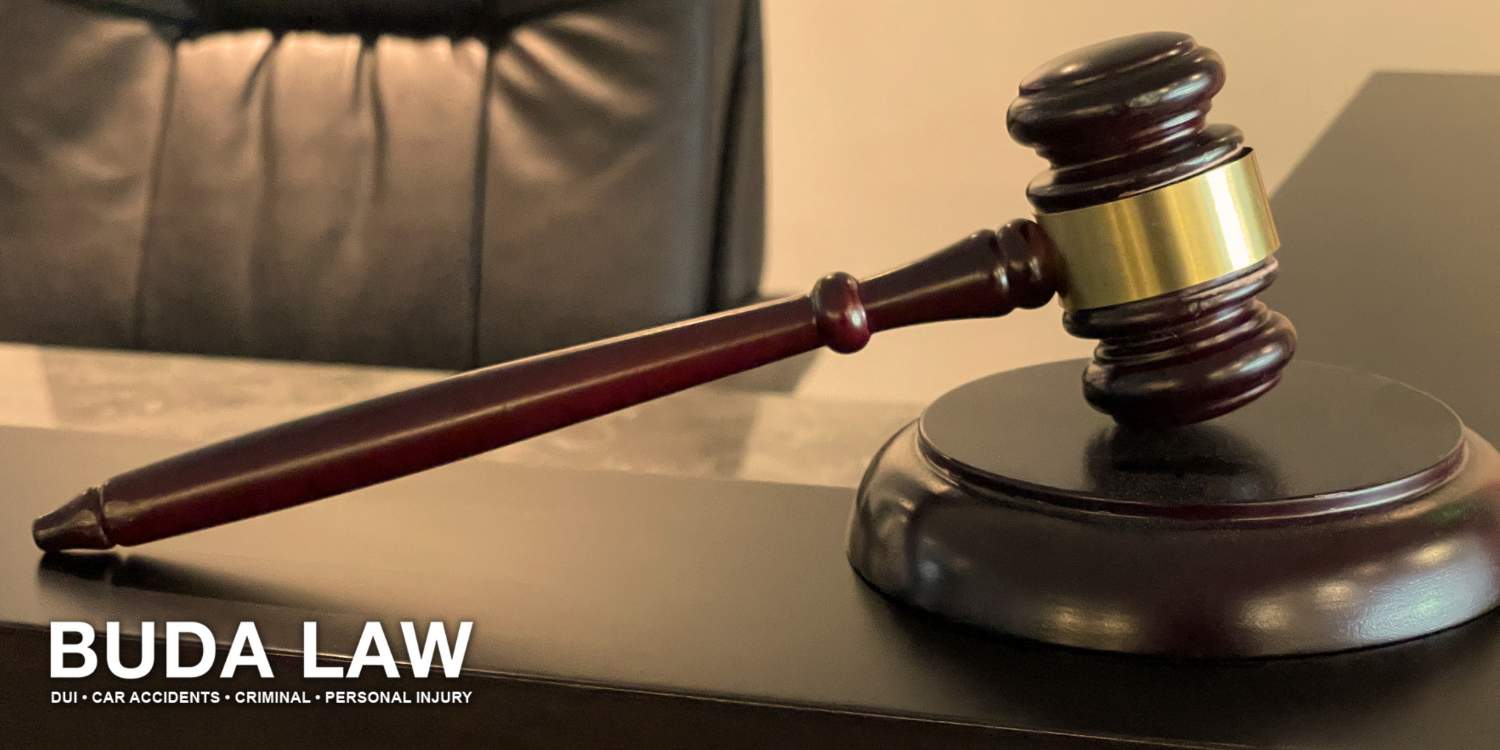Aggressively Fighting for the Best Possible Outcome
TAMPA EXTORTION LAWYER
Experienced Criminal Defense Lawyer for Extortion Charges Throughout Hillsborough County
At Buda Law, we understand the gravity of facing extortion charges in Hillsborough County. Our Tampa criminal defense team, led by experienced attorney Andrew Buda, is dedicated to providing aggressive and strategic legal representation tailored to the unique circumstances of each client’s case.
With a deep understanding of Florida and federal laws governing extortion, we are committed to safeguarding your rights, reputation, and future. Trust in Buda Law to navigate the intricacies of the legal system with the utmost professionalism and fight tirelessly for the most favorable outcome possible.

If you’re facing criminal charges for extortion in Florida, contact the experienced criminal defense lawyers at Buda Law by calling (813) 322-2832 today.
What is Extortion?
Extortion involves the illicit acquisition of money, property, or services from individuals or organizations through coercion. This intimidation is not limited to physical threats but can also include psychological pressure, such as the threat of exposing confidential information, damaging someone’s reputation, or leveraging any other form of intimidation to compel the victim into compliance.
Unlike direct acts of theft or robbery where immediate force or violence is employed, extortion is characterized by the exploitation of fear, authority, or a position of power to achieve compliance. Whether prosecuted in state or federal court, extortion charges can result in large fines and lengthy prison sentences.
Florida Statute 836.05
According to Florida Statute 836.05, it is illegal to send or deliver any written or printed communication that threatens to accuse someone of a crime, to inflict harm or injury to any person or property, or to expose any secret or publish any defamatory statement that would affect someone’s reputation to obtain money or any advantage from the person being threatened or to compel the person to do or refrain from doing an act against their will.

Examples of Extortion
A person can commit extortion in a number of ways, ranging from personal interactions to complex schemes involving businesses or public figures. Here are some examples to illustrate the breadth of this crime:
- Business Extortion: A business owner might be threatened with false accusations of violating health and safety regulations unless they pay a sum of money to the extortionist. This can also include “protection” rackets where businesses are coerced into paying for protection services against threats created by the extortionists themselves.
- Cyber Extortion: With the rise of digital platforms, cyber extortion has become very prevalent. This type of cyber crime can involve threats to release sensitive or damaging information online (such as private photos or emails) unless the victim pays a ransom.
- Loan Sharking: This involves lending money at extremely high interest rates with the threat of violence for non-payment. While the initial transaction may seem voluntary, the coercive collection methods and enforcing unmanageable terms classify it as extortion.
- Healthcare Fraud: This type of extortion involves deceitful practices within the healthcare system to gain money or assets illegally. This can manifest in various forms, such as billing for services not rendered, exaggerating the services provided, or falsifying a patient’s diagnosis to justify unnecessary tests.
- Mortgage Fraud: These deceptive practices aim to manipulate the mortgage lending process to obtain loans under false pretenses. This can involve inflating property appraisals, fabricating borrower information, or concealing critical financial details to secure loan approval.
- Wire Fraud: This extortion plot uses telecommunications or the internet to defraud individuals or entities of money or property. It leverages modern communication technologies, such as email, phone calls, or messaging services, to execute schemes that deceive victims through false representations or promises.
These scenarios demonstrate the varied landscape of extortion in Florida, emphasizing the need for skilled legal defense to navigate such cases within the state’s legal framework.

Is Blackmail a Crime in Florida?
In Florida, blackmail is considered a white-collar criminal offense and falls under the broader category of extortion. Blackmail typically involves threatening to reveal sensitive or damaging information about an individual unless they relent to certain demands, usually for monetary compensation or other benefits.
Under Florida law, this act of coercion for financial gain, by exploiting someone’s fear of damage to their reputation or other harm, is illegal. The state’s legal framework treats such conduct seriously, recognizing the profound impact it can have on victims.
If you’ve been charged with blackmail, it’s critical that you take the allegations seriously, as they can result in extensive prison sentences and fines. The seasoned Tampa white-collar crime attorneys from Buda Law have experience handling blackmail and other fraud cases and are prepared to represent you.

Is Extortion a Federal Crime?
Extortion is also recognized as a federal crime in the United States, particularly when it involves interstate or foreign commerce. Federal law addresses extortion under the Hobbs Act, which bans actual or attempted robbery or extortion involving interstate or foreign commerce in any way.
This includes threats or violence to obtain money or property, as well as “economic extortion,” where someone uses their position or power to demand payments without providing just compensation in return.
Given the broad scope of interstate commerce, many acts of extortion, especially those utilizing telecommunications or online platforms, can fall under federal jurisdiction, leading to severe penalties under federal law.
Penalties for Extortion Charges in Florida
In Florida, the penalties for extortion charges are quite severe, reflecting the seriousness with which the state views this crime. Extortion is classified as a second-degree felony, so those convicted could be sentenced to 15 years in prison and $10,000 in fines. According to the Florida Criminal Punishment Code Scoresheet, extortion ranks as a Level 6 severe criminal offense.
The felony charges that accompany an extortion conviction can vary based on the amount of money involved and other factors surrounding the criminal charges. Working with experienced criminal defense lawyers from Buda Law can increase your chances of a more favorable outcome. To learn more about how our Tampa felony defense attorneys can help you fight against extortion charges, contact Buda Law today.

Penalties for Extortion Under Federal Law
Extortion, or blackmail, under 18 U.S. Code § 873 can result in up to one year in federal prison and fines costing up to $100,000. However, sentences can vary based on the specific details of the case and factors listed in 18 U.S.C. § 3553 (a). The United States Sentencing Guidelines are also taken into consideration before handing down a federal sentence.
It’s important to note that federal charges can often be pursued in addition to state charges, depending on the nature of the crime and how it was executed. This can lead to an individual facing both state and federal penalties for their actions. The federal government’s resources and the broad scope of federal laws make federal extortion cases particularly serious, emphasizing the need for experienced legal counsel for anyone facing such charges.
How Tampa Criminal Defense Attorney Andrew Buda Can Help
Navigating the criminal court system, whether at the state or federal level, demands the assistance of a seasoned defense attorney like Andrew Buda. His comprehensive understanding of the legal landscape and a strong track record in criminal defense positions him as a formidable ally for those facing such charges.
Former prosecuting attorney Andrew Buda excels in crafting tailored defense strategies that address the unique nuances of each case, ensuring thorough representation from pre-trial stages to courtroom proceedings. His adeptness at dealing with complex legal issues extends to interactions with federal prosecutors, making him particularly effective in cases that span the intricate boundaries between state and federal jurisdictions.
With Andrew Buda’s commitment to diligent case analysis and strategic defense, clients are equipped with the dedicated legal support they need to confront the challenges of the criminal court system and secure the best outcome possible.

Crafting a Defense Strategy Against Extortion Charges
Crafting a defense strategy against extortion charges in Florida requires a nuanced understanding of the case’s specific circumstances and the broader legal principles at play. This process begins with a comprehensive review of all evidence, including the prosecution’s claims and any communications or transactions relevant to the alleged extortion.
A skilled defense attorney from Buda Law will explore potential motivations behind the accusations, identifying any inconsistencies or weaknesses in the prosecution’s narrative. Key elements of a solid defense strategy may include reasonable doubt by disputing the alleged victim’s account of events or highlighting any lawful right to the disputed demands.
In some instances, it’s possible to negotiate for reduced charges or alternative resolutions, especially if mitigating factors can be presented. Throughout, the defense must a navigate the complex interplay of state and federal laws, ensuring the accused’s rights and best interests are protected and the most favorable outcome is pursued.

Facing Extortion Charges? Call a Tampa, FL White Collar Crime Attorney at Buda Law Today
The stakes are high if you’re confronting extortion charges, and the path forward can seem daunting. At Buda Law, we specialize in defending against white-collar crimes of all kinds, bringing a wealth of experience and a commitment to personalized, aggressive legal representation to your case. Our criminal defense attorneys in Tampa understand the nuances of such charges and are prepared to scrutinize every detail, aiming to introduce reasonable doubt and dismantle the prosecution’s claims. We’re dedicated to protecting your rights and securing the best possible outcome. Don’t navigate this challenging time alone; call Buda Law today at (813) 322-2832 or reach out online to schedule a free consultation with an experienced lawyer from our firm today.CASE RESULTS
Get the Toughness of a Trial Attorney
START BUILDING YOUR CASE
Schedule a Free Consultation
WHAT MAKES OUR DEFENSE SO EFFECTIVE?
- Former State Prosecutor
- Highly Responsive & Accessible
- Result-Oriented Advocacy
- We Prepare Every Case as if it's Going to Trial
- Personal Representation Centered Around You
- Exceptional Negotiator
